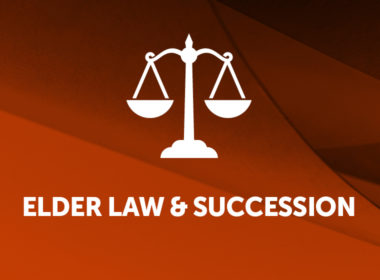Key decisions
- Wan v BT Funds Management Limited [2022] FCA 302
- KCO [2021] NSWCATGD 29
- Carrington v Wallace [2022] NSWSC 1078
- Catholic Parish of St Brigid Marrickville v Habib as Executor of the Estate of the late Tereza Efram [2022] NSWSC 1139
There is no fixed ‘purpose of superannuation’ approach to decide payment of superannuation death benefit
The trustee of Asgard Independence Plan decided to pay the death benefit of $881,111, payable as a result of Maxwell Walker’s death, to his estate rather than Jing Wan. AFCA affirmed the decision as fair and reasonable. Wan appealed to the Federal Court on a question of law (Wan v BT Funds Management Limited [2022] FCA 302 (Anastassiou J)). Wan argued that she was a dependant of the deceased at his death, and the trustee’s decision was contrary to the policy to favour dependants over an estate, commonly called the ‘purpose of superannuation’.
The Court rejected this argument and explained that ‘the Trust Deed does not constrain the exercise of the Trustee’s discretion such that the deceased’s superannuation death benefits should be prima facie paid to dependants as opposed to the deceased’s legal personal representative’ (at [99]). Further, ‘I do not accept the Applicant’s submissions concerning the principles said to be universally applicable to a trustee when exercising its powers to decide upon the distribution of a superannuation death benefit’ (at [109]). Such an approach was ‘not sound as a matter of principle or analysis’ (at [112]). The position is the same when the trustee’s decision is reviewed by AFCA (at [110]).
Walker had made a non-binding nomination to his estate. Walker’s will left his residuary estate to Wan and two others equally. As to AFCA’s review of the trustee’s decision, the Court stated that ‘it was reasonable and necessary for AFCA to take into account the Applicant’s entitlements under the deceased’s will – and consequently through the non-binding nomination of his estate – when considering whether the Trustee’s Decision was fair and reasonable’ (at [105]). Moreover, ‘I see no reason why AFCA should not have considered the provision made by the deceased for the Applicant holistically when considering whether the Trustee’s decision to affirm the death benefit nomination was fair and reasonable’ (at [106]). The Court continued ‘having regard to the manifest purpose of that express discretionary power; namely, that the Trustee may decide to nominate various persons from within the defined classes under the Trust Deed, objectively it could not give proper and genuine consideration to the exercise of that power without first ascertaining the state of affairs so far as the financial interests of beneficiaries are concerned’ (at [117]).
Applying this new approach to the facts, the Court stated that ‘the aggregate provision made by the deceased for the Applicant from the whole of his assets, within and outside his estate at the time of his death, objectively bespeaks an intention on his part to make substantial provision for the Applicant (albeit not exclusively so). That is a compelling factor which supports AFCA’s conclusion that the Trustee’s decision was fair and reasonable having regard to the Applicant. It is for the same reason also an objectively compelling factor which supports upholding AFCA’s decision’ (at [119]).


